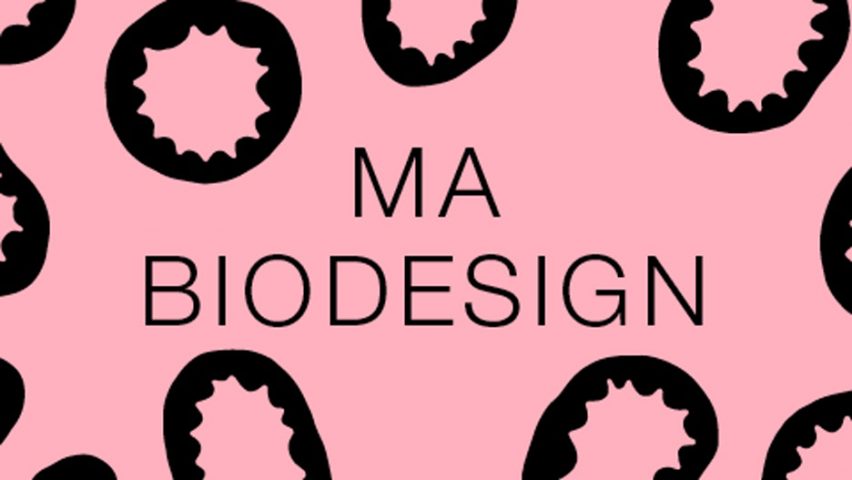Central Saint Martins launches masters course in biodesign
Central Saint Martins college in London has announced a new masters degree in biodesign to promote sustainable innovation, which is set to start in September 2019.
The new two-year masters programme will explore bio-informed design strategies in a bid to encourage more eco-friendly focused innovation.
The main aim of the course is to rethink the approach to design and manufacturing by engaging with biological systems in architecture, product design, jewellery, fashion or textiles.
It is billed by Central Saint Martins (CSM) as the first of its kind, although a similar course is also offered by fellow London school The Bartlett.
Course will bridge design and science
Students undertaking the masters programme will learn about biomimicry principles, synthetic biology protocols, biocomputation and biofabrication methods.
It is hoped this will allow students to develop new design propositions that can "redefine energy, water, air, waste and materials and how we design and make in the future".
"We believe that in order to tackle contemporary environmental and societal challenges, there is an increased need for hybrid models of education between design and science," course leader Nancy Diniz told Dezeen.
"We are already witnessing an energetic movement of startups and young entrepreneurs focusing on developing products and services on circular design, zero waste, sustainable materials and low-energy manufacturing, for example," she added.

According to Diniz, the decision to launch the Biodesign MA is the result of a decade of pioneering educational design and research in the field of sustainable innovation practices at CSM.
This included the driving force of Professor Carole Collet, who founded the Textiles Futures MA, which later became the Material Futures MA.
"The launch of the new masters in biodesign is a natural development of these initiatives and it aims towards the delivery of a focused programme on biodesign with a curriculum that provides the equal integration of biological and design skills," said Diniz.
Merging design and science is necessary
A new bio-laboratory facility called the Grow Lab has been installed at the institution to assist students on the course, who will be supported by a team of both designers, biologists and bio-lab technicians.
According to Diniz, the course leaders are also looking at entering into partnerships with science-based institutions, to offer more support with specific pedagogical agendas and industry-based projects as part of the programme.
In a recent interview with Dezeen, British designer Ross Lovegrove shared his belief that it is the duty of designers to set an example when it comes to environmental responsibility.